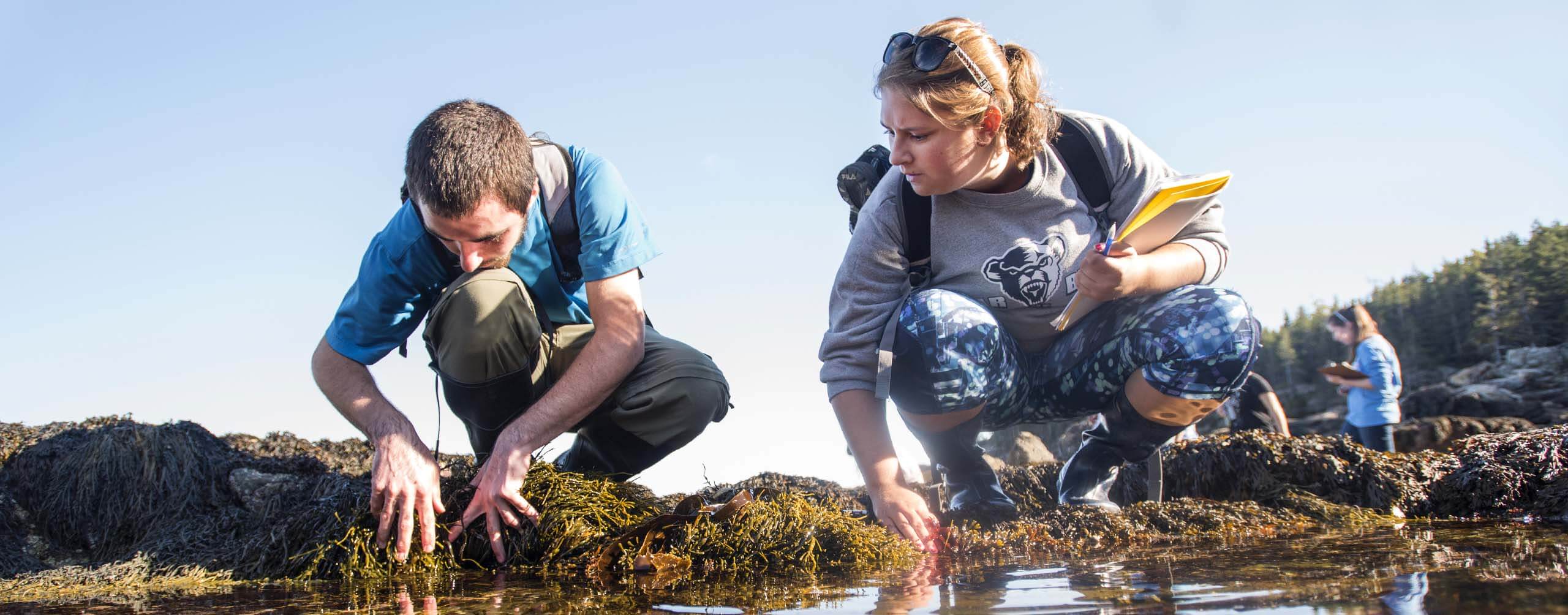
Ecology and Environmental Sciences
College of Earth, Life, and Health Sciences
Ecology and environmental sciences (EES) is an interdisciplinary program that emphasizes the link between humans and the environment. The program is designed to acquaint students with the scope and characteristics of our natural resources and to introduce the scientific, social and economic principles that govern resource use, sustainability, and conservation.
Our curriculum is designed to address current environmental challenges and provide an education that ensures our graduates are competitive in today’s job market. We train students to be well-grounded in both social and biophysical sciences, and to be equipped with practical skills such as field and research experience, facility with geographic information systems, ability to communicate effectively and familiarity with information technologies.
Through their concentrations, EES majors receive in-depth training from several academic units across campus, including anthropology; biology and ecology; earth and climate sciences; economics; food and agriculture; forest resources; marine sciences; and wildlife, fisheries, and conservation biology. EES students learn about a wide array of natural systems, as well as the scientific, social and economic principles that govern use of natural resources.
We offer a number of concentrations so students can select the focal area that best meets their interests and career goals. The program is designed to allow students ample flexibility to pursue individual interests in preparing for careers or postgraduate study.
It is widely understood that human and environmental health face unprecedented challenges across the globe, and that understanding–and solving–these problems requires comprehensive study.
Our interdisciplinary program will help you explore the inextricable link between humans and the environment. The concentrations we offer will let you chart your own course, ensuring you build the foundation for a career you find rewarding and fascinating.
When you choose EES at UMaine, you will apply your new knowledge in real-world scenarios on campus, throughout the state, and through job experiences with regional consulting firms, non-profit organizations, and state and federal agencies.
Our alumni find that they are highly competitive when applying to graduate school or careers in environmental consulting, natural resource management, conservation, land use planning, biology and policy. We hope you will join our community of students and faculty who are driven to seek sustainable solutions to some of the most pressing challenges of our time.
Lisa Gardner
Program Coordinator
Bryand Global Sciences Center, Room 111
207.581.3176 | ees@maine.edu
Ecology and Environmental Sciences
College of Earth, Life, and Health Sciences
Nutting Hall, Room 101
207.581.3176
